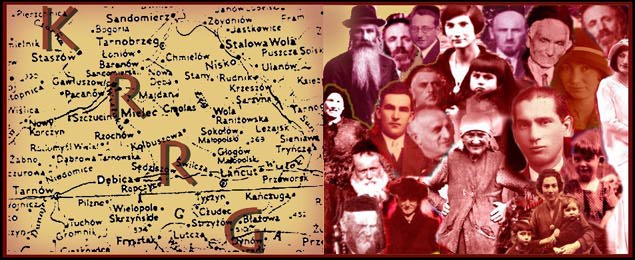


Excerpt of a conversation with a survivor.
By Shirley Drillings Steinman
From conversation on March 11, 1998 with a gentleman who was born in
Raniźów, Poland in 1924 and lived there until the Nazis occupied the country in 1939. He was sent to the labor camps and then to the concentration camps at Bergen-Belsen and later Auschwitz.He told me that
Raniźów was a small town of about 200 to 300 families, mostly Polish. There was a mayor and a city council which was elected every two years No Jews were ever elected. All adults of 19 or older could vote. At 19 all men served in the Army. Taxes were collected to pay for the school. Children attended school from age seven to fourteen. Also, the Jewish boys went to Cheder.The town had no hospital or doctor. Death was accepted and burial was the same day, even on Saturday night.
The people lived in wooden houses, without running water or inside bathrooms. Well water was used for cooking on wood burning stoves (later coal was used) and also for washing clothes which had to be boiled. Bathing was done in the home by boiling the water and sitting in a large metal tub. There was no electricity, candles were used. The streets were not paved, but were covered with stones. Transportation was by horse, horse drawn carts and coaches.
The town had a Mikvah and a large synagogue where from 500 to 600 people came from nearby towns for the High Holidays. Both men and women used the Mikvah but on different days. All the Jews were Orthodox. Those who were not were either Communists or Zionists. Communism and Zionism were considered criminal and people were put in jail for these offences. The term was 2 years but none survived the conditions in jail. Most of the communists and Zionists were young people.
The Drillings were a very large family with many branches. They owned large tracks of land and raised cattle. They also grew wheat and corn. Among them were butchers and they would slaughter cattle for the Sabbath. There were no factories or other industries.
The nearest town was Sokoł
ów and the nearest city was Rzeszów. Raniźów is in the south-east part of Poland near the Russian border. In Yiddish Raniźów was pronounced "Ronjif".© Copyright 2017 Kolbuszowa Region Research Group. All rights reserved.